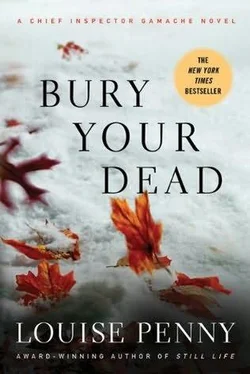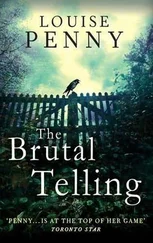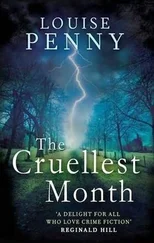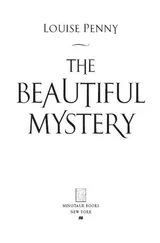Louise Penny - Bury Your Dead
Здесь есть возможность читать онлайн «Louise Penny - Bury Your Dead» весь текст электронной книги совершенно бесплатно (целиком полную версию без сокращений). В некоторых случаях можно слушать аудио, скачать через торрент в формате fb2 и присутствует краткое содержание. Жанр: Старинная литература. Описание произведения, (предисловие) а так же отзывы посетителей доступны на портале библиотеки ЛибКат.
- Название:Bury Your Dead
- Автор:
- Жанр:
- Год:неизвестен
- ISBN:нет данных
- Рейтинг книги:4 / 5. Голосов: 1
-
Избранное:Добавить в избранное
- Отзывы:
-
Ваша оценка:
- 80
- 1
- 2
- 3
- 4
- 5
Bury Your Dead: краткое содержание, описание и аннотация
Предлагаем к чтению аннотацию, описание, краткое содержание или предисловие (зависит от того, что написал сам автор книги «Bury Your Dead»). Если вы не нашли необходимую информацию о книге — напишите в комментариях, мы постараемся отыскать её.
Bury Your Dead — читать онлайн бесплатно полную книгу (весь текст) целиком
Ниже представлен текст книги, разбитый по страницам. Система сохранения места последней прочитанной страницы, позволяет с удобством читать онлайн бесплатно книгу «Bury Your Dead», без необходимости каждый раз заново искать на чём Вы остановились. Поставьте закладку, и сможете в любой момент перейти на страницу, на которой закончили чтение.
Интервал:
Закладка:
“Yes, but mostly it’s about her dedication. Once committed some women will never give up, they’ll be merciless, unstoppable.” Gamache was silent for a moment, staring out the window but no longer seeing the flow of people bundled against the biting cold. “In what context were they talking about this? Why did The Wife say it?”
“They were talking about the case. Clara had asked Hanna Parra if she could kill.”
“Clara needs to be more careful,” said the Chief. “Did anyone particularly respond to that?”
“Clara said they all did, but after some discussion they reluctantly agreed the Mossad might have had it right.”
Gamache frowned. “What else did the women talk about?”
Beauvoir looked at his notes and told Gamache about the rest of the conversation. About fathers and mothers, about Alzheimer’s, about Charlie Mundin and Dr. Gilbert.
“There was something else. Clara thinks Marc Gilbert is desperately jealous of Old Mundin.”
“Why?”
“Apparently his father’s spending a lot of time at the Mundins’. The Wife admitted Old has developed a sort of bond with Dr. Gilbert. A substitute father.”
“Jealousy’s a powerful emotion. Powerful enough to kill.”
“But the wrong victim. Old Mundin isn’t dead.”
“So how could this play into the death of the Hermit?” the Chief asked and waited while there was a long pause. Finally Beauvoir admitted he didn’t see how it could.
“Both Carole Gilbert and Old Mundin are originally from Quebec City. Could you ask around about them?” When the Chief agreed Beauvoir paused before asking his last question. “How are you?”
He hated to ask, afraid that maybe the Chief would one day tell him the truth.
“I’m at the Café Krieghoff with Émile Comeau, a bowl of nuts and a Scotch. How bad can it be?” Gamache asked, his voice friendly and warm.
But Jean-Guy Beauvoir knew exactly how bad it could be and had been.
Hanging up, an image stole into his mind, uninvited, unexpected, unwanted.
Of the Chief, gun in hand, suddenly being lifted off his feet, twisting, turning. Falling. To lie still on the cold cement floor.
Gamache and Émile hailed a cab and took the diaries home. As Émile prepared a simple supper of warmed-up stew Gamache fed Henri then took him for a walk to the bakery for a fresh baguette.
Once home the men sat in the living room, a basket of crusty bread on the table, bowls of beef stew in front of them and the Chiniquy diaries piled on the sofa between them.
They spent the evening eating and reading, making notes, occasionally reading each other a particularly interesting, moving or unintentionally amusing passage.
By eleven Armand Gamache took off his reading glasses and rubbed his weary eyes. So far while historically fascinating the Chiniquy journals hadn’t revealed anything pertinent. There was no mention of the Irish laborers, Patrick and O’Mara. And while he did talk about James Douglas in the earlier diaries, the later ones mentioned him only in passing. Eventually there was an entry Émile read Gamache about Douglas packing up his three mummies and heading down to Pittsburgh, to live with his son.
Gamache listened and smiled. Chiniquy had made it sound petty, like a kid picking up his marbles and going home. Had Father Chiniquy done that on purpose, to diminish Dr. Douglas? Had there been a falling out? Did it matter?
An hour later he glanced at Émile and noticed the older man had fallen asleep, a journal splayed open on his chest. Gently raising Émile’s hand he removed the book, then put a soft pillow under Émile’s head and covered him with a comforter.
After quietly placing a large cherry log on the fire Gamache and Henri crept to bed.
The next day, before breakfast, he found an email from the Chief Archeologist.
“Something interesting?” Émile asked.
“Very. Sleep well?” Gamache looked up from his message with a smile.
“Wish I could say that was the first time I’d nodded off in front of the fire,” Émile laughed.
“So it wasn’t my stimulating conversation?”
“No. I never listen to you, you know that.”
“My suspicions confirmed. But listen to this,” Gamache looked back down to his email. “It’s from Serge Croix. I asked him to find out what digging work was being done in the old city in the summer of 1869.”
Émile joined his friend at the table. “The year Chiniquy and Douglas met the Irish workers.”
“Exactly, and the year covered in the missing journal. Dr. Croix writes to say there were three big digs. One at the Citadelle, to reinforce the walls, one to expand the Hôtel-Dieu hospital and the third? The third was to dig a basement under a local restaurant. The Old Homestead.”
Émile sat for a moment then leaned back in the chair and brought a hand up to his face, thinking. Gamache got to his feet.
“I think I’ll treat you to breakfast, Émile.”
Comeau got up, his eyes bright now too. “I think I know where.”
Within twenty minutes they’d climbed the steep and slippery slope of Côte de la Fabrique, pausing for breath and to stare at the imposing Notre-Dame Basilica. Where the original little church had stood, built by the Jesuit priests and brothers and supported by Champlain. A modest New World chapel dedicated to the Virgin Mary to celebrate the return of Québec from the English in their see-saw battle for possession of the strategic colony.
This was where the great man’s funeral had been held and where he’d been buried, albeit briefly. At one time Augustin Renaud had been convinced he was still there in the small chapel of St. Joseph, where the amateur archeologist had found a lead-lined coffin and some old coins. And had started digging without permission, igniting a storm that had engulfed even the church. Père Sébastien had sided with Renaud, to the fury of the Chief Archeologist.
Still, nothing had been found. No Champlain.
Though, strangely, that coffin had never been opened. All had agreed it couldn’t possibly be Champlain. It was a rare show of respect for the dead, by the archeologists, by Renaud and by a church more than happy to dig up Général Montcalm but not this anonymous corpse.
So, Gamache thought as he continued his walk, suppose Champlain hadn’t originally been buried in the chapel but in the graveyard. The records showing the exact resting place of the father of Québec had been lost in the fire, even the exact position of the cemetery was just a guess. But if it was beside the chapel that could put the cemetery right about—
Here.
Gamache stopped. Above him loomed the Château Frontenac and off to the side Champlain himself, imposing and impossibly heroic, staring out across the city.
And in front of the Chief? The Old Homestead, now a restaurant.
Taking off his gloves he reached into his jacket and took out the sepia photo taken in 1869.
The Chief Inspector backed up a few paces, walked a couple to the right, then stopped. Looking from the photo to the reality and back again. His bare fingers were red and burning from the cold, but still he held the photo, to be sure.
Yes.
This was it, this was the exact spot where Patrick and O’Mara had stood 150 years earlier, on a sweltering summer day.
They’d been digging beneath the Old Homestead and something they found made the normally sullen men smile. Before it had been a restaurant the Homestead had been, as it sounded, a private home. And before that? It was a forest, or a field.
Or maybe, a graveyard.
The Old Homestead was now a greasy spoon. It had seen better days. Even bombardment by English cannons would have been better than what had become of it in recent years.
Waitresses, gamely wearing vaguely period costume, poured weak coffee into mass-produced white mugs. Hard, uncomfortable wooden chairs, made to look olde worlde, held tourists who’d hoped the charming exterior was a promise of a charming interior.
Читать дальшеИнтервал:
Закладка:
Похожие книги на «Bury Your Dead»
Представляем Вашему вниманию похожие книги на «Bury Your Dead» списком для выбора. Мы отобрали схожую по названию и смыслу литературу в надежде предоставить читателям больше вариантов отыскать новые, интересные, ещё непрочитанные произведения.
Обсуждение, отзывы о книге «Bury Your Dead» и просто собственные мнения читателей. Оставьте ваши комментарии, напишите, что Вы думаете о произведении, его смысле или главных героях. Укажите что конкретно понравилось, а что нет, и почему Вы так считаете.











